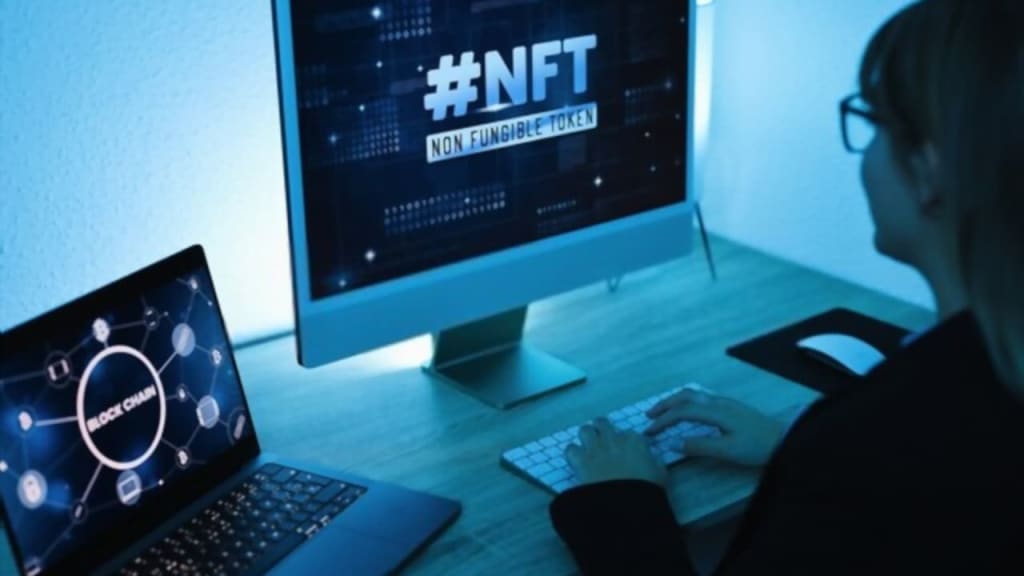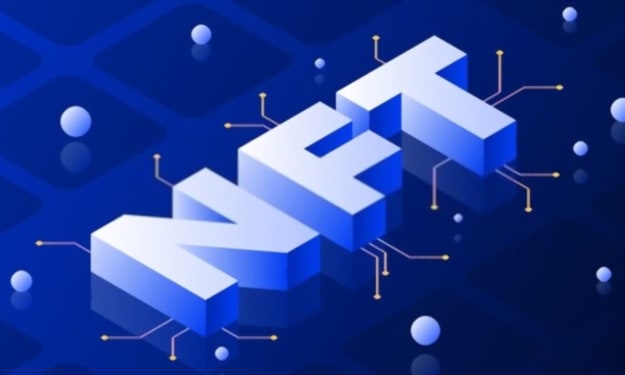Navigating the World of NFT Tokens: A Beginner's Guide
7 Exciting Methods Of Determining The Value Of A Non-Fungible Token

NFT stands for Non-Fungible Token, which is a digital asset that represents ownership of a unique item or piece of content. Unlike fungible assets such as cryptocurrencies or traditional currencies, which are interchangeable and have equal value, NFTs are unique and cannot be replicated.
NFTs are often used to represent digital art, music, videos, or other forms of digital content. By creating an NFT, the creator can prove ownership and authenticity of the digital asset, as well as sell or trade it on various NFT marketplaces.
NFTs use blockchain technology, typically the Ethereum blockchain, to create a secure and transparent system for verifying ownership and transactions. This technology ensures that each NFT is one-of-a-kind and cannot be duplicated or altered.
The market for NFTs has exploded in recent years, with some NFTs selling for millions of dollars. However, the use cases and future potential of NFTs are still being explored, and there is an ongoing debate about the value and sustainability of this emerging technology.
What Is a Non-fungible Token?
A Non-Fungible Token (NFT) is a type of digital asset that represents ownership of a unique item or piece of content, such as art, music, video, or other digital files. Unlike fungible tokens like cryptocurrencies, which are interchangeable and have equal value, NFTs are unique and cannot be replicated or duplicated.
NFTs are created using blockchain technology, typically the Ethereum blockchain, which provides a secure and transparent system for verifying ownership and transactions. Each NFT is one-of-a-kind and contains a unique identifier, making it impossible to duplicate or alter.
NFTs have become increasingly popular in recent years, particularly in the art world, where they offer a new way for artists to monetize their work and prove ownership and authenticity. NFTs also has potential use cases in areas such as gaming, virtual real estate, and collectibles.
The market for NFTs has exploded in recent years, with some NFTs selling for millions of dollars. However, there is an ongoing debate about the value and sustainability of this emerging technology, and the future potential and applications of NFTs are still being explored.
What Are The Attributes Of An NFT Token?
The attributes of an NFT token include:
- Uniqueness: NFTs are unique and cannot be replicated or duplicated, unlike fungible tokens like cryptocurrencies, which are interchangeable and have equal value.
- Ownership: NFTs represent ownership of a unique asset or piece of content, which can be verified and tracked on a blockchain.
- Scarcity: NFTs are often created in limited quantities, increasing their perceived value and scarcity.
- Digital authenticity: NFTs provide a way to prove the authenticity and ownership of digital assets, which was previously difficult to do in a digital environment.
- Transferability: NFTs are transferable between owners, allowing for buying, selling, and trading of unique digital assets.
- Immutable record-keeping: NFTs are stored on a blockchain, providing an immutable and transparent record of ownership and transactions.
- Smart contract functionality: NFTs can be programmed with smart contracts, which can automate certain functions such as royalties and licensing fees.
Overall, the attributes of NFTs make them an innovative and potentially valuable tool for digital ownership and provenance, as well as a new way for creators to monetize their digital content.
How To Determine The Value Of An NFT?
Determining the value of an NFT can be a complex process and involves a combination of factors, including:
- Rarity: The rarity of the NFT is one of the most significant factors that can impact its value. The more unique the asset, the higher its perceived value may be.
- Popularity: NFTs that are created by popular artists, musicians, or other celebrities may have a higher value due to the increased demand for their work.
- Historical significance: NFTs that have historical significance or cultural importance may have a higher value due to their significance and rarity.
- Condition: The condition of the digital asset may also impact its value. If the asset is well-maintained and in good condition, it may be more valuable than a similar asset in poor condition.
- Utility: NFTs that have additional utility, such as granting access to special events or exclusive content, may have a higher value.
- Auction results: Monitoring auction results and previous sales of similar NFTs can provide a benchmark for pricing and valuation.
- Creator's reputation: The reputation and history of the creator of the NFT can also impact its perceived value.
Overall, the value of an NFT is determined by a combination of these factors, as well as market demand and other subjective factors such as personal taste and cultural significance.
Benefits of NFT Token
NFT (Non-Fungible Token) tokens have emerged as a new and revolutionary technology that has the potential to revolutionize the way we think about digital ownership and value. Here are some of the key benefits of NFT tokens:
- Authenticity and uniqueness: NFT tokens are unique and cannot be replicated, making them an ideal solution for verifying the authenticity of digital assets such as art, music, or video content.
- Proof of ownership: NFT tokens provide a transparent and immutable record of ownership, allowing creators and collectors to prove ownership of digital assets in a secure and tamper-proof way.
- Value: NFT tokens can be used to represent a wide range of digital assets, including collectibles, artwork, music, and virtual real estate. By creating scarcity and uniqueness, NFT tokens can increase the value of digital assets and provide a new avenue for monetization.
- Smart contracts: NFT tokens can be programmed with smart contracts, allowing creators and collectors to set specific terms and conditions for the sale and use of digital assets.
- Decentralization: NFT tokens are often built on decentralized blockchain networks, which allows for a more secure and transparent ownership system without the need for intermediaries.
- Cross-border transactions: NFT tokens can facilitate cross-border transactions without the need for intermediaries or complicated currency conversions.
- Accessibility: NFT tokens can be bought, sold, and traded easily through various online marketplaces, making them accessible to anyone with an internet connection.
Overall, NFT tokens have the potential to create new opportunities for digital ownership, monetization, and value creation. As the technology continues to evolve and become more widely adopted, we can expect to see even more innovative uses and applications of NFT tokens in the future.
Conclusion
In conclusion, a Non-Fungible Token (NFT) is a type of digital asset that represents ownership of a unique item or piece of content. NFTs are unique and cannot be replicated, and are created using blockchain technology to provide a secure and transparent system for verifying ownership and transactions. The market for NFTs has exploded in recent years, particularly in the art world, offering new ways for artists to monetize their work and prove ownership and authenticity. However, the future potential and applications of NFTs are still being explored, and there is an ongoing debate about the value and sustainability of this emerging technology.
About the Creator
Geetika Chara
A passionate content writer actively working at NFT Development Services. I'm really interested to write Non-fungible Token Development blogs or articles to explore.






Comments
There are no comments for this story
Be the first to respond and start the conversation.